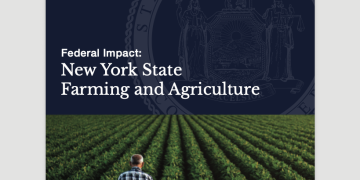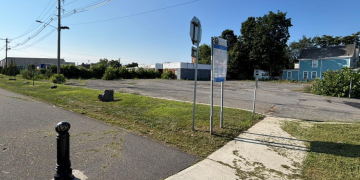“What are these tomatoes used for?” a farmers market shopper asks Four Winds proprietor James (Jay) Armour, tasting a cut sample of a sweet, juicy specimen called “Striped German.”
“They make good sandwiches ”“ or throwing at someone you don”™t like,” the Gardiner organic farmer quips.
Although his produce runs the gamut of greens and root vegetables, tomatoes are Armour”™s specialty. Fifty varieties boast names like Cosmonaut Volkov, Mortgage Lifter and Box Car Willie. His displays at farmers markets in Cold Spring Saturdays, New Paltz Sundays and Woodstock Wednesdays cover the rainbow: Green Zebra, Yellow Brandywine, Ruby Gold, Cherokee Purple, not to mention Black Pineapple and White Beauty.
There are canning varieties and cherry tomatoes in red, orange and yellow hues.
For a recent farmers market, Armour picked 1,600 pounds of tomatoes, grown in 45 rows of 100 feet each. Harvesting occurs three days a week to insure a fresh supply.
“Every year I try 15 new varieties,” he said. “I also eliminate those that aren”™t as popular.”
Direct sales allow Armour to offer soft-skinned tomatoes “that are so fragile that they barely make it from field to barn. That”™s why you don”™t see them in supermarkets,” he said.
Armour”™s expansive tomato crop is a far cry from the sparse few once grown by his mother amidst shrubbery on a 1/4-acre lot in Garden City. Young Jay Armour entered Friends World College in Huntington, which involved students in international projects. He spent two years in Kenya in the mid-1970s.
“The country was changing from an agricultural economy,” he said. Back home, he worked on a small Huntington farm. “But, Long Island farmland was too expensive, so when I met my wife, we settled up this way.”
As an organic farmer, Armour fertilizes with manure and compost, rotating crops on a three-year basis. “I keep some beef cattle for manure,” he said.
Armour”™s wife, Polly, keeps busy overseeing activities of the Armour children, Sarah and Josh, ages 15 and 12 respectively this October. Assisting Armour are two full-time helpers. He insists his farming method is less labor intensive than non-organic farming.
“We do not plow or rototill,” he said. “A rotary cultivator generates weeds, bringing weed seed to the surface, introducing oxygen into the soil. This gives a jump on weeds. Tilling burns up organic matter, releasing it as carbon dioxide into the air and contributing to global warming.”
There is life beyond tomatoes for the Gardiner farmer. After allowing himself some respite to enjoy ice skating and skiing, he holes up in a greenhouse. There he prepares seedlings for his own use and mid-May sale for backyard gardens.
Early April finds the Armour team putting compost onto beds and laying mulches.
“In mid-May the flood gates open up,” he said. “Frost-free date is May 15, and everything goes into the ground.” He grimaces recalling an unanticipated May snow the night before a seedling sale.
Another farmer”™s nightmare is drought. “I have a deep irrigation system. If it gets really dry, I have auxiliary pumps for a pond that feeds into a sprinkler system,” he explained.
Summer finds the trio tying tomato plants to stakes. There is no respite to planting in autumn, the targeted time for fall carrots and garlic. Fall is also field cleanup time.
Mention of carrots brings to Armour”™s mind a visit by a Fresh Air Fund boy who loved carrots and went exploring the fields to find some. “He didn”™t know they grew underground,” his host recalled, saddened at the deprivation of impoverished city children.
Challenging Careers focuses on the exciting and unusual business lives of Hudson Valley residents. Comments or suggestions may be e-mailed to Catherine Portman-Laux at cplaux@optonline.net.
















